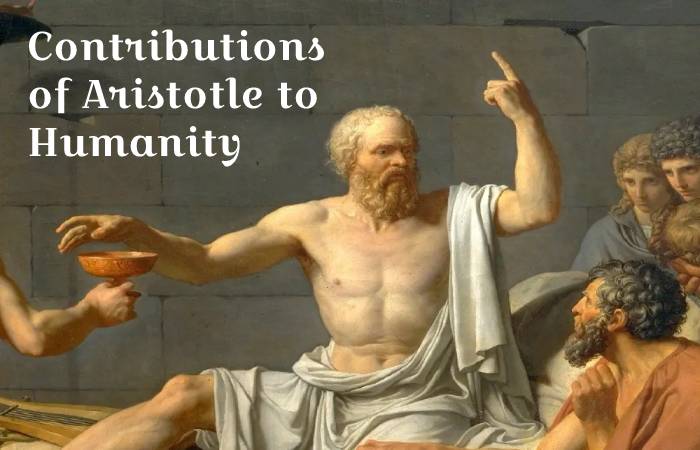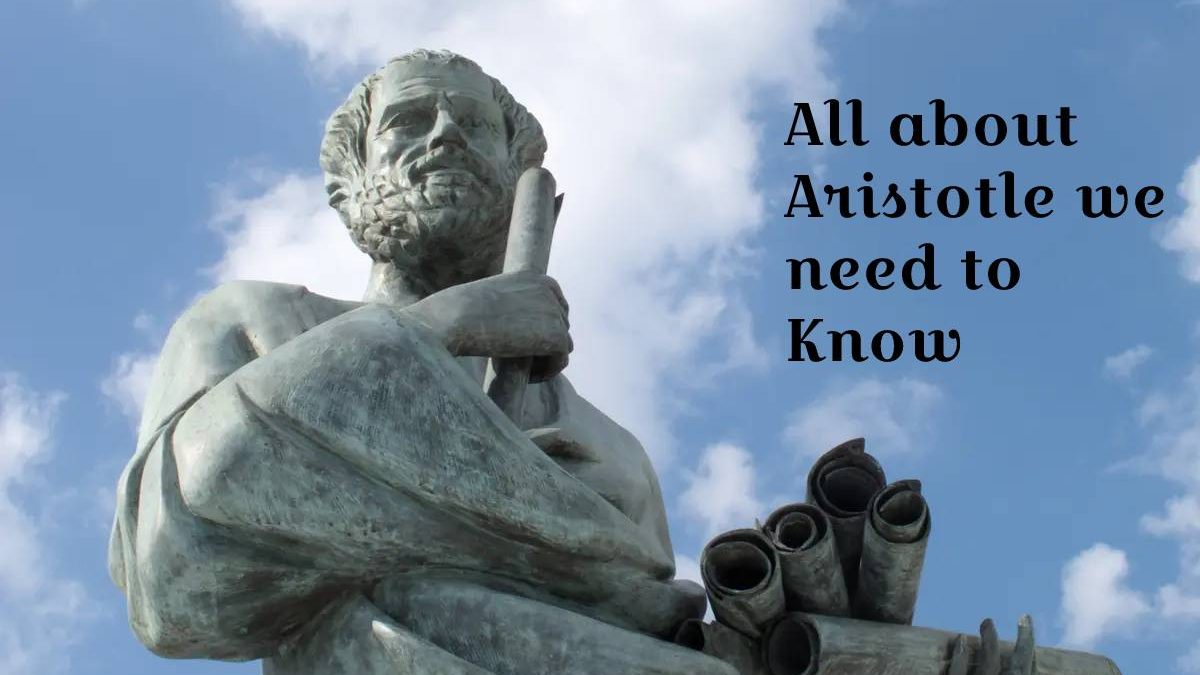From philosophical thought and reflection to culture and science, Aristotle’s contributions have set the standard for the most outstanding scientists since we can remember, transcending centuries, languages, cultures, and even people’s ideals.
As a sample button, Galileo Galilei —a great astronomer and engineer— was a great follower of his influence. The truth is that there are plenty of examples that could cover this entire article, but that is not its intention.
In this prospect, we will talk a little about who he was and the contributions of Aristotle during his life and his legacy, together with the importance of studying a master’s degree in philosophy to become a genius like him.
Table of Contents
Who was Aristotle?
All about Aristotle we need to Know
First of all, this thinker was a disciple of one of history’s great philosophers: Plato.
Aristotle was almost obsessed with the search for those intangible truths and how to bring them to our physical reality, which is why he explored the natural world and the sciences for years to understand his environment down to the last detail.
He studied marine fauna and other animals: in fact, he published and even introduced the concept of “natural science” and “natural philosophy”. In addition, he delved into the idea of beauty and goodness and determined that this was the goal of all living beings, in his opinion.
5 Contributions of Aristotle to Humanity

In his 62 years of life, Aristotle, this great Greek scientist and thinker, learned about various topics such as culture and science, deriving his knowledge in contributions that continue to influence today, such as:
1. The Formalized System of Thought
All about Aristotle we need to Know
Aristotelian logic, as it is also known, was coined by Aristotle from various works collected in the Organon, a book that spread his knowledge to the masses.
In this logic, Aristotle states that the mind can only reproduce reality as it is and, therefore, it is an exact and objective science. Consequently, it is designed to elaborate concepts and study them according to their nature: predicables or predicaments.
In the formalized system of thought, the fundamental principles address, which he called “axioms”, and are equivalent to the requirements or mandatory characteristics of all argumentation and action.
Likewise, it introduces judgments and syllogisms —speeches in which certain things establish— that by their nature lead to other different things, for example:
- All men are mortal.
- All Greeks are men.
- Therefore, all Greeks are mortal.
For many centuries, from medieval times to the High Middle Ages, these concepts of logic and reasoning were used to establish religious ideas and, in the analysis of the recognised philosophers for the codification of laws of logic.
2. The Political Analogy
All about Aristotle we need to Know
Politics was another field of interest that led to several contributions by Aristotle during his life.
In his book Politics, he defines the “political community” and compares it to other communities such as the family or the village. Additionally, he provides his opinions on the best regimen from his perspective.
In this publication, the philosophical foundations of a politician’s work lay when he compares him to an artisan who follows principles —policies— to maintain the legal system, respecting universal aspects to provide the greatest well-being to people.
It gave rise to the idea that a ruler’s presence establishes even more so that society could succeed in the city-state.
Likewise, he raised the need for a constitution that would dictate the norms of life among citizens and define its top objective.
3. Findings in Medicine
His studies in biology made him the forerunner of physiology and comparative anatomy, thanks to the comparison of more than 50 living beings.
Indeed, his findings in the field of embryology gave the first descriptions of the early stages of development, organ formation, and the differences between veins and arteries.
The work he produced use for centuries as part of ancient Greek medicine theories, where four qualities—hot, cold, moist, and dry—shaped scientific research.
4. The Importance of Observation in Science
All about Aristotle we need to Know
Within the contributions of Aristotle is the importance of observing when you want to understand how things. Work and using it as part of the essential practice of reasoning.
The scientific method is due —in many ways— to this research philosophy. This is why it laid the foundations for what are now the great discoveries in areas such as mathematics, physics, chemistry, and zoology.
As it is known, the inductive-deductive method is the only way have to find out the cause of things. And from which scientific knowledge derives.
In this sense, Aristotle determined that science is demonstrative knowledge.
5. The Shape of the Earth
Although there are still supporters of the flat Earth theory, Aristotle from the fourth century BC. C. was able to argue and prove that the Earth was round.
As evidence, one of its supports was the constellations and the movement of the Earth concerning them. Also, the size of the stars in the sky gave clues to their shape.
Furthermore, without even understanding the concept of gravity coined by Newton in 1617. Aristotle said that the weight of all parts moved towards the centre of the Earth. Due to this naturally, its shape was spherical.
You will be able to learn all this and much more if you decide. To complement your studies with a master’s degree in philosophy. Thanks to this postgraduate course, you will learn about the currents. Of thought elaborated by Aristotle and other great thinkers of our history.
Now, you know how this great teacher was able to unravel the recesses of the mind and since. Then impact the world around us with the contribution of his studies and philosophical investigations.
Therefore, if you want to be part of this recognized world of thought. The best thing you can do is imitate Aristotle and study philosophy, not Plato. But with other teachers in an educational institution.
What do you think of this idea? Share your opinions about it and if you believe that philosophy. Is an area that you would like to explore academically and professionally!


Review All about Aristotle we need to Know.